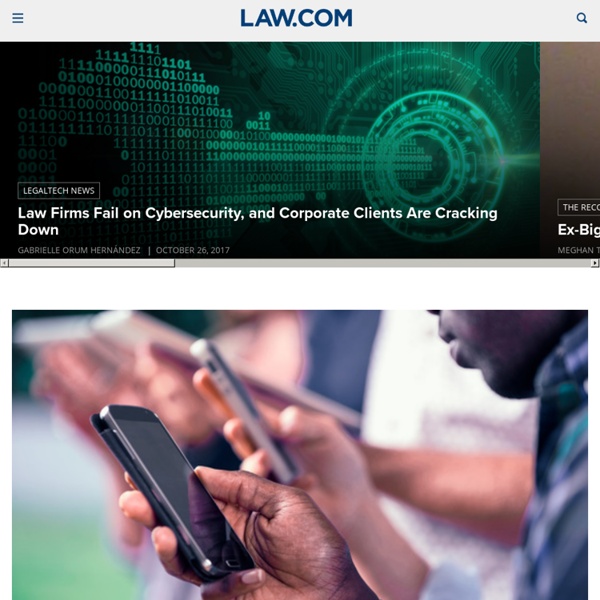



Nachrichten aus Recht und Steuern | Rechtslupe Too Many Cooks in eDiscovery | Bow Tie Law’s Blog Also Posted on frank! The Nextpoint Blog There are phrases a lawyer never wants to hear a judge say. One is your law firm “acted negligently in failing to comply with its discovery obligations.” Another is your client “acted … See on bowtielaw.wordpress.com Financial market In economics, typically, the term market means the aggregate of possible buyers and sellers of a certain good or service and the transactions between them. The term "market" is sometimes used for what are more strictly exchanges, organizations that facilitate the trade in financial securities, e.g., a stock exchange or commodity exchange. This may be a physical location (like the NYSE, BSE, NSE) or an electronic system (like NASDAQ). Much trading of stocks takes place on an exchange; still, corporate actions (merger, spinoff) are outside an exchange, while any two companies or people, for whatever reason, may agree to sell stock from the one to the other without using an exchange. Trading of currencies and bonds is largely on a bilateral basis, although some bonds trade on a stock exchange, and people are building electronic systems for these as well, similar to stock exchanges. Types of financial markets[edit] Raising capital[edit] Lenders[edit] Individuals & Doubles[edit] Companies[edit]
ausgewählte Gesetze in Deutschland - Buzer.de No Legal Duty or Business Reason to Boil the Ocean for eDiscovery … As an addendum to my previous blog post on the unique eDiscovery and search burdens associated with the de-centralized enterprise, one tactic I have seen attempted by some CIOs to attempt to address this daunting … See on blog.x1discovery.com Reach business decision makers with custom b2b advertising - Fie You need results. We deliver. When you’re in charge of an online marketing budget, you need to be certain you are reaching the right people, the right way. It's about selection and quality. Our highly regarded editorial coverage and analysis ensures Fierce readers are the most engaged and loyal in their industries. The FierceMarkets solution portfolio includes 12 core products and 42 targeted publications, allowing you a tailored, multifaceted campaign. We have the perfect solution for you. Whether your goals are about lead generation, brand awareness, or thought leadership, we have products to fit your needs.
§ 144 SGB III Ruhen bei Sperrzeit Sozialgesetzbuch (SGB) Drittes Buch (III) Viertes Kapitel Arbeitslosengeld und Insolvenzgeld Erster Abschnitt Arbeitslosengeld Erster Unterabschnitt Regelvoraussetzungen § 144 Anspruchsvoraussetzungen bei beruflicher Weiterbildung (1) Anspruch auf Arbeitslosengeld hat auch, wer die Voraussetzungen für einen Anspruch auf Arbeitslosengeld bei Arbeitslosigkeit allein wegen einer nach § 81 geförderten beruflichen Weiterbildung nicht erfüllt. (2) Bei einer Arbeitnehmerin oder einem Arbeitnehmer, die oder der vor Eintritt in die Maßnahme nicht arbeitslos war, gelten die Voraussetzungen eines Anspruchs auf Arbeitslosengeld bei Arbeitslosigkeit als erfüllt, wenn sie oder er bei Eintritt in die Maßnahme einen Anspruch auf Arbeitslosengeld bei Arbeitslosigkeit hätte, der weder ausgeschöpft noch erloschen ist, oder die Anwartschaftszeit im Fall von Arbeitslosigkeit am Tag des Eintritts in die Maßnahme der beruflichen Weiterbildung erfüllt hätte; insoweit gilt der Tag des Eintritts in die Maßnahme als Tag der persönlichen Arbeitslosmeldung.
Undue Burden in eDiscovery Legal Geek Joshua Gilliland, Esq., blogger for www.bowtielaw.com, discusses undue burden in electronic discovery. No part of this recording should be conside… See on www.youtube.com Business Opportunities | Franchise Opportunities | Business For JurPC: Internet-Zeitschrift für Rechtsinformatik The Evolving Nature of Hacktivism The evolving nature of hacktivism An insight into Anonymous attack activity (The Evolving Nature of #Hacktivism.via Digital Forensics Magazine at See on www.digitalforensicsmagazine.com Used Blog Auctions / Buy / Sell Blogs, Domains, Toplist Websites
Recht-Portal mit Anwaltssuche Home | Midmarket.org